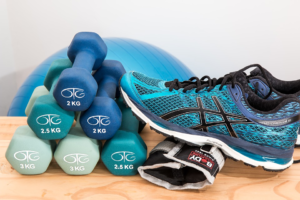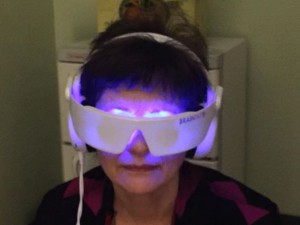
Regular exercise isn’t a panacea that miraculously cures all physical and mental ailments, but doctors and experts agree that even a small amount of physical activity each day does improve the mental and physical damages caused by substance abuse. A growing body of research indicates that incorporating exercise into treatment recovery programs overwhelmingly benefits recovering addicts.
How exercise helps
Regularly scheduled exercise provides an outlet that reduces stress and anxiety, replacing negative or harmful activities with positive ones through consistent structure. Exercise helps to restore and repair your body’s immune system and other systems damaged by substance abuse.
Exercise provides a sense of accomplishment and even pleasure, because it releases endorphins—neurotransmitters that help relieve pain and make you feel pleasure or euphoria. While drug use also releases these neurotransmitters, exercise provides a much a healthier way to feel their effects. Substance abuse disorders (SUDs) damage serotonin and dopamine receptors, and exercise can repair them, which renews their ability to boost your sense of well-being and emotional stability. Physical activity also activates galanin, a brain-based chemical that reduces some stress-related cravings.
Exercise improves brain function by facilitating the repair and formation of additional neurons, improving communication between neurons, and increasing the production of blood vessels responsible for transporting oxygen to your brain.
Many recovering addicts struggle with sleeping, but exercise can improve your sleep, too. The National Sleep Foundation conducted a study that supports research suggesting that people sleep better and feel more alert if they engage in at least 150 minutes of physical activity a week.
Exercise: Think outside the box
The best thing about exercise is that it doesn’t have to include a membership to the gym—although if that’s your thing, go for it! But whether you’re pumping iron, taking a spin class, or hiking through the woods, talk to doctor before you start an exercise program.
You definitely want to take it easy on your body if it’s recovering from physical damage caused by substance abuse, and if you’ve lived a more sedentary lifestyle recently, you may want to consider alternative physical activities—like breathing exercises, meditation, or yoga—to start.
Yoga connects your body and mind by teaching and encouraging you to use meditation to tune into yourself, focus on the present, and release worries and struggles (even if only briefly). It provides an outlet to calm your mind and find alternatives that help you think your way past temptation and identify and address triggers or cravings. If you’re a beginner, look for a class in your area. Or practice yoga and meditation in your own home with these online resources from Yoga Journal.
Walk, run, or hike. You’ll raise your self-esteem and increase your energy because you’ll be working on your mobility and flexibility, while lowering blood pressure and improving your circulation with even just low-impact cardio. An added bonus: Recent studies have shown that spending time in nature can change (i.e., heal) your brain.
Swimming provides another great way to exercise a body that’s in extensive pain or has suffered significant damage from SUD. Water provides a buoyant, low-impact environment in which to stretch and gently exercise with less pressure on muscles and joints. Water also provides a very soothing, relaxing environment.
Gardening is low impact and easily adaptable, and it requires that you spend time in the sunshine where you’ll get plenty of vitamin D, which boosts your immune system. Its added bonus? When you plant and incorporate fruits and/or vegetables into your meals, you’ll eat healthier.
Dance invites you to get lost in the music and the beat. It’s liberating, gets your heart pumping, and increases energy and flexibility.
Maintain a healthy routine for long-term recovery
Regardless of what exercise you choose—or whether you mix in a variety of physical activities—incorporating even just 15 to 30 minutes of daily activity has innumerable benefits.
Exercise relieves stress, lowers blood pressure, facilitates physical healing, boosts your mood and creativity, reduces your risk of chronic disease, and even mitigates brain damage—a much healthier outlet to helping you better manage your triggers, cravings, and stressors as you recover from SUD.
Photo Credit: Pixabay
 these days. We carry some great nutritional supplements to help with sleep. We also have health coaches who can guide you on eating and drinking habits that can help with your sleep. Bowen Therapy can also be very effective in helping down-regulate the autonomic nervous system, so as to get you to sleep better at night. Getting enough exercise on a daily basis helps resolve issues if done consistently.
these days. We carry some great nutritional supplements to help with sleep. We also have health coaches who can guide you on eating and drinking habits that can help with your sleep. Bowen Therapy can also be very effective in helping down-regulate the autonomic nervous system, so as to get you to sleep better at night. Getting enough exercise on a daily basis helps resolve issues if done consistently.

